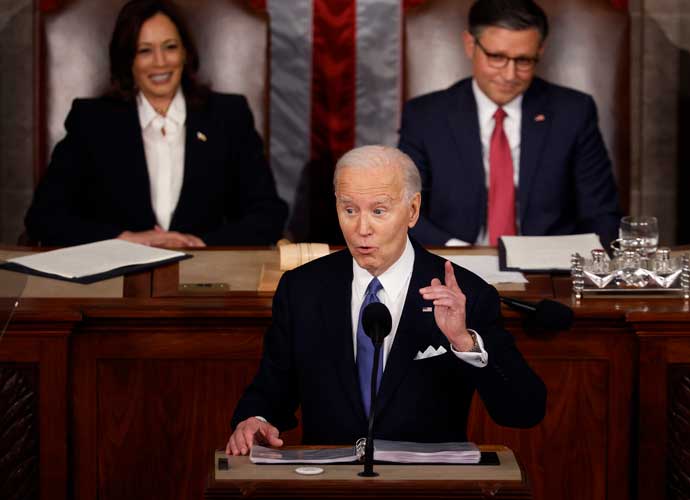Breaking Bad's RJ Mitte: My Message To Bullies
RJ Mitte, the actor best known for playing Walter “Flynn” White Jr. on the hit show Breaking Bad, wants to be known for something else now — as the face of the Shriners Hospitals For Children anti-bullying campaign, "Cut the Bull," which asks individuals to take a stand against bullying.
Mitte, who has cerebral palsy, was often subjected to both verbal and physical abuse as child. “I dealt with people making fun of me," he told uInterview. "I’ve dealt with kids making fun of my braces and how I speak, how I walk. I had my hand broken. I was pushed I was shoved.”
Mitte knows exactly how he'd handle a bully these days. “If it came down to speaking directly to a bully, I would just tell them, someone will come around and do the exact same thing they’re gonna do to you as you’re doing to the other person," he told uIntreview. "Karma is a big thing and a lot of people don’t believe in it, but I do believe in karma. What you put into this world it’ll come back tenfold. I mean, do you really want people to see you as a tyrant? Or do you want to see you as a calm, respectable person.”
For more on the #CutTheBull campaign click here.
What would you say to someone who is bullying a disabled person?
RJ MITTE: If it came down to speaking directly to a bully, I would just tell them, someone will come around and do the exact same thing they’re gonna do to you as you’re doing to the other person. Karma is a big thing and a lot of people don’t believe in it, but I do believe in karma. What you put into this world it’ll come back tenfold. I mean, do you really want people to see you as a tyrant? Or do you want to see you as a calm, respectable person. That’s the thing about bullies, when you see a bully, when you see someone taking advantage of someone and instilling the belief system of fear into them, that’s not humane — that’s a monster. That’s someone that will never grow, will never flourish, and will never be who he’s truly meant to be, and they will only settle for something that is not theirs, so it will never grow. The problem with the bully is the bully takes. A bully will go and take and take and take. The problem with the bully is they can’t use what they take. It’s not theirs to use. It’s not who they are, it’s not what they are. They can use the tools that they have, the tools they are given, but they try to take from other people and the problem with that is they can’t use it. You can’t use someone’s spirit; you can’t use someone’s hope. You can’t use… you can use an object, but what you’re doing is your taking more then someone’s object. You’re beating someone down; you’re breaking who they are down. And eventually when you do that multiple times, they will retaliate. The problem with that is, it’s not always a good retaliation.
What is the ‘Cut the Bull’ campaign about?
RJM: The ‘Cut the Bull’ campaign is a number of things. My main idea for it, ‘Cut the Bull’ campaign is at it says, ‘Cut the Bull,’ to help bring awareness and prevent bullying for people with disabilities and to have an impact on people. You can’t stop bullying. You can’t end it. But you can cut it out and you can help prevent it. Bullying will be around forever, this will be an existing problem till the day we die, it's human nature, there’s nothing more, there’s nothing less then that. But what you can do is you can set the example and show people that you are taking a stand, that you are going to prevent it and that you are going to stand for what you believe in and what you think is right. That can help, that can make more of difference for so many people. I was lucky enough to partner with Shriners Hospital for children. I was a Shriners student, I went to Shriners from 3 to 10 treated with casting and braces and occupational therapy and speech therapy. I went through that for years and maintained therapy treatments not through Shriners but by my own accord. I’ve been lucky enough that I try to give back as much as possible.
How were you bullied as a child?
RJM: It all varied depending on the situation. I traveled a lot when I was a kid. I travelled practically as much as I do now. I don’t fly as much, but I used to drive a lot. I was a new kid at least once a year, maybe twice a year. I was always the new kid in school. I dealt with people making fun of me. I’ve dealt with kids making fun of my braces and how I speak, how I walk. I had my hand broken. I was pushed I was shoved, but I never allowed that to bother me because I saw who was doing it to me, and I saw who they were and what they were gonna do and the thing about what they were gonna do was I looked them and I saw they were doing nothing. That was the most exciting part of their day, that was the most intelligent conversation they probably had — was making fun of me. The thing about that is, you can’t grow, you can’t flourish. You can be broken down but you can continue to grow but when you are taking something and crushing something and pretty much destroying who someone is, that’s not growing that’s not learning. You are learning traits that do not exist anymore in this world; those traits are not what people are looking for. That will carry over to you into adulthood, how as you behave in the schools, how you behave in your classrooms, how you behave in the playgrounds. You are learning social skills. You’re learning skills and tools to take into your adulthood. The problem with it is what are you gonna take? What are you going to use in adulthood, 'cause you keep taking people's socials skills, you keep taking other people's hopes and who they are and what they are. That’s not yours. You can’t use that in your adulthood. You can't be like, Oh I pushed that kid down 'cause of this, and I learned that if you push him down hard enough he’s gonna cry. You can’t use that, like, that doesn’t work. It's just sad 'cause you gotta learn to pity people like that, and pitying someone isn’t a good thing.
RELATED ARTICLES
Get the most-revealing celebrity conversations with the uInterview podcast!








Leave a comment